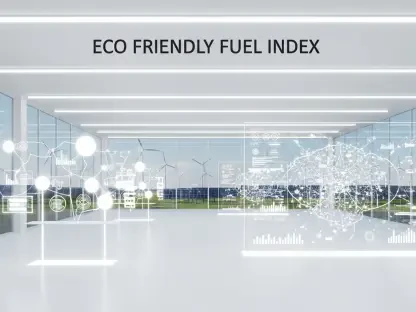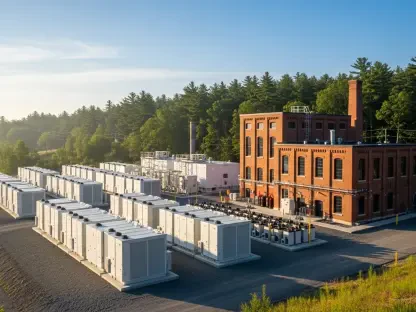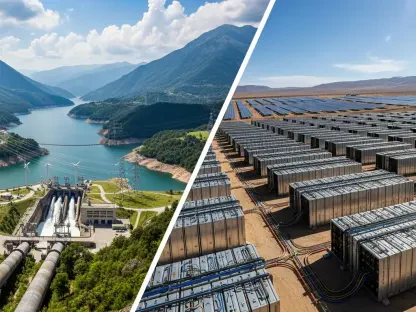In a transformative move for the continent’s energy sector, Nigeria has taken a bold step toward harmonizing petroleum regulations across Africa, spearheading an initiative that promises to reshape the industry’s landscape. With the global energy market becoming increasingly competitive, African nations face the dual challenge of attracting investment while addressing shared issues like emissions and cross-border trade. This pioneering effort, launched during a significant gathering at Africa Oil Week in Accra, seeks to create a unified regulatory framework that could position Africa as a formidable player on the world stage. By fostering collaboration among diverse nations, this initiative tackles long-standing disparities in governance and sets a precedent for regulatory excellence. The momentum behind this movement reflects a growing recognition of the need for standardized practices to unlock the continent’s vast energy potential.
Building a Collaborative Framework for Energy Governance
Establishing a Unified Vision for Regulation
The initiative, driven by Nigeria’s leadership through the Nigerian Upstream Petroleum Regulatory Commission, marks a historic moment for Africa’s energy sector with the formation of a dedicated forum. Under the guidance of Gbenga Komolafe, the commission’s head, this platform aims to streamline regulatory approaches across participating countries. Sixteen nations joined the inaugural event, with eight—Gambia, Ghana, Guinea, Madagascar, Nigeria, Somalia, Sudan, and Togo—officially endorsing a charter to formalize their commitment. The remaining seven expressed strong interest, pending internal consultations, signaling a broad consensus on the value of unified standards. This collaborative spirit addresses critical areas such as gas trade and digitalization, aiming to create a cohesive environment that aligns with international best practices while catering to the continent’s unique needs.
Structuring a Robust Governance Model
Beyond the initial endorsements, the forum’s structure is designed to ensure sustainable progress through a well-defined governance model. An executive committee of regulatory leaders will oversee strategic decisions, supported by a technical committee of experts to address operational challenges. A rotating secretariat among member countries will maintain administrative continuity. In the coming months, elections will determine key leadership roles, including the chairperson and the location of the headquarters. This structured approach emphasizes accountability and timelines to translate vision into action. The establishment of these functional pillars underscores a commitment to not just conceptual unity but tangible outcomes that can attract global investors seeking clarity and stability in Africa’s energy policies.
Positioning Africa as a Global Energy Contender
Enhancing Investment Appeal through Standardization
A primary goal of this regulatory unification is to bolster Africa’s attractiveness as an investment destination in the global energy market. Disparate regulations have historically deterred potential investors due to the complexity and unpredictability of navigating multiple frameworks. By harmonizing standards, the forum seeks to eliminate these barriers, offering a more transparent and predictable environment. This is particularly crucial as the continent holds significant untapped resources that could drive economic growth if paired with investor-friendly policies. Recent developments, such as Nigeria’s landmark production sharing contract for crude oil and natural gas exploration, highlight the potential for such collaborations to yield substantial economic benefits when supported by consistent regulatory practices.
Addressing Shared Challenges for Long-Term Impact
Another critical focus of this initiative is resolving cross-border issues that have long hindered progress in the energy sector. Challenges like emissions control, equitable gas trade, and the integration of digital tools require coordinated efforts that transcend national boundaries. The forum provides a platform for dialogue and joint action, enabling countries to share expertise and resources to tackle these complex problems. Transparency remains a cornerstone, as aligning with international benchmarks not only builds trust with global partners but also ensures that local communities benefit from sustainable practices. This collective approach is poised to redefine how African nations manage their energy resources, fostering a unified front that can assert greater influence in shaping international energy policies.
Reflecting on a Milestone for Future Growth
Looking back, the journey to establish this regulatory forum marked a turning point for Africa’s energy governance. The commitment shown by the initial group of nations, coupled with the structured framework put in place, laid a solid foundation for addressing long-standing disparities. The enthusiasm of endorsing countries and the cautious optimism of others awaiting domestic approval painted a picture of cautious yet hopeful progress. As the initiative gained traction, the focus shifted to sustaining this momentum through effective leadership and continued collaboration. The path forward involved navigating diverse national interests, but the shared vision of regulatory unity offered a promising start. Future steps included leveraging the upcoming elections to appoint leaders who could drive this agenda, ensuring that the forum’s early achievements evolved into lasting solutions for Africa’s role in the global energy landscape.









